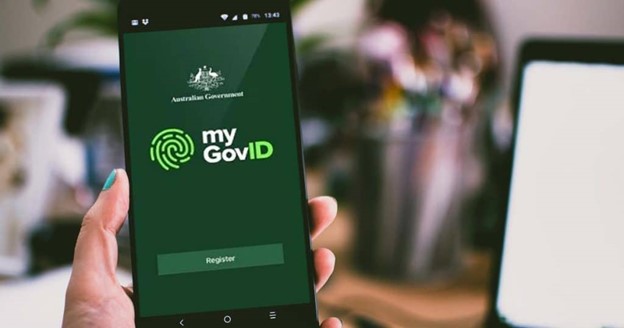
By Leon Hill @iamLeonHill on X
“Australia just passed its Digital Identity Bill into law.
I’m Australian, but live in Iceland : a country that already has an all-encompassing digital ID system. If you’re wondering how Australia’s new system will play out, I’ll tell you here.
And also, how Australians who don’t want a digital ID can attempt to protect themselves… at least for a short while.
In Iceland, the digital ID system is linked to each person’s kennitala, or social security number.
I sign into everything with my electronic ID (rafræn skilríki) via my phone. Any time I access my bank account, phone services, accounting, tax, insurance, credit score, manage my assets (car/house), power bill, medical record, when I vote, or even want to pull up a store receipt of something I’ve bought, it’s all linked to my digital ID.
Everything in one place. Everything.
You cannot NOT have a digital ID to live in Iceland. It’s impossible. You can’t get power turned on, get a phone number, buy or register a car, rent or buy a house, or even buy certain items without having a kennitala or digital ID. You need one.
This has its benefits (it makes life more streamlined when you’re trying to do something in daily life), but it also means there is no privacy at all in Iceland. Anyone can look up where I live. The license plate of my car. How much tax I paid last year. My phone number. You name it. It’s public and available—and all you need is my kennitala to find it all out.
But the government has access to more. The Icelandic government and tax office has access to my bank accounts and knows every transaction I make, what I spend, and what I earn. They don’t need a warrant, or anything else to access it—it’s theirs. They just need probable cause to look at it.
Australians, this is what’s coming for you.
Over the coming years, the government will make it impossible to opt out of the digital ID system. You’ll need one for everything.
And most importantly, they’ll coerce Australians into adopting it by creating laws that link it to the most important thing you need to survive in today’s modern world: your bank account.
They’ll do it on the grounds of anti-money-laundering and financial safety. The gov’t will enforce laws onto banks (among the many ID and verification laws already mandated on banks) that if you don’t have the digital ID, you won’t be able to open, keep, or use a bank account.
If your refuse, you’ll effectively be locked out of society. Because in today’s modern world, you need access to banking services to survive.
Banking will be first. Then everything else in society will be linked to your digital ID.
Nothing will ever again be private. Just like in Iceland today, the government will know everything. Always. Forever.
So, are there ways to opt-out or protect yourself? Yes, and also no.
It all comes down to having other options. If you’re solely a citizen or resident of Australia and nowhere else, you will have no other options. You will be forced to stay in the ecosystem of Australia.
If you have a second passport however, you will have a second nation to fall back on to use its banking, economic, and social system if you don’t want to be forced into adopting Australia’s. You can still live in Australia, but potentially hold bank accounts in your other nation.
If you don’t have a second passport, but know you’re eligible for one via a parent, grandparent, or other means, I would seriously suggest taking action to claim it as soon as possible.
But what if you are stuck? Sure, you could leave Australia. But that’s not for everyone.
One backup plan that may help you for a while, is becoming an eResident of another country.
eResidency (or digital residency) allows you to access the services of another nation (like banking, etc) without living there. The two major eResidency programs offered today exist in the Baltic EU nation of Estonia, and the island nation of Palau.
You never have to go to either country to claim eResidency. It’s a background check, and a small payment, and you can be then sent a nationally-recognised ID card from that nation, that will allow you to among many other things, set up a bank account.
Simply search for “Palau digital residency” or “Estonia eResidency” online if you’re interested in either.
It’s not a perfect solution. It won’t completely protect you if your decision will be to stay in Australia long-term. On a long enough timeline—like in Iceland—you will eventually have to get Australia’s digital ID.
The government will make it impossible for you to live otherwise.
But having a backup plan—like a bank account, or money/assets in a location that is harder for the Australian government to access or block you from—might be something you are interested in.
And I’m all for having backup plans. But again, the best backup plan will always be a citizenship/passport of at least one more nation, or at the very least, you having a permanent residency permit elsewhere. Somewhere that believed in citizens having freedom and privacy.
I hope this helps.”

You must be logged in to post a comment.